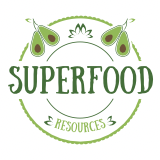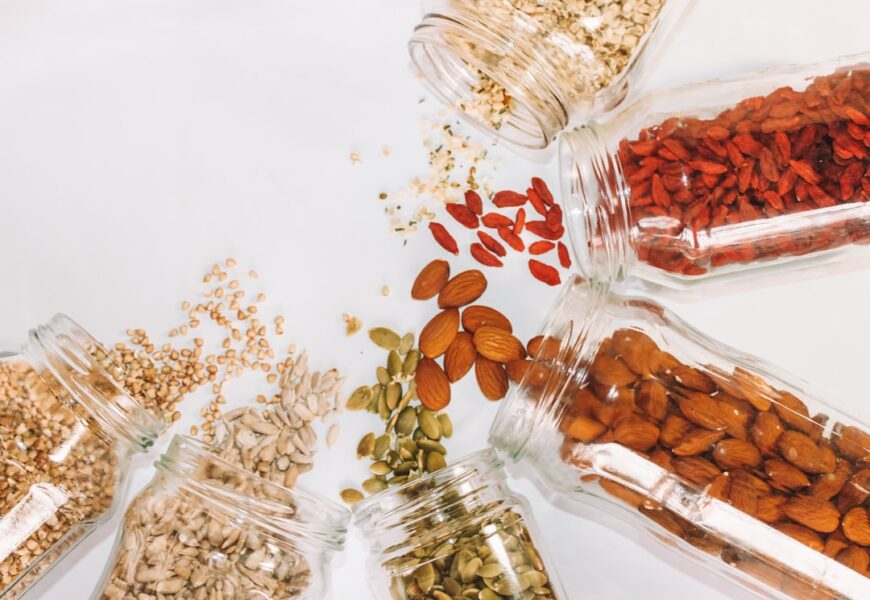Beginner’s Guide to Superfoods and Sustainable Living
Introduction
Welcome to your beginner’s guide to superfoods and sustainable living! Embarking on this journey not only promotes healthier eating habits but also plays a crucial role in caring for our planet. Superfoods are nutrient-rich foods considered especially beneficial for health and well-being, while sustainable living practices help reduce our environmental impact. This guide will introduce you to the essentials of integrating both into your everyday life, equipping you with the knowledge to make informed, eco-friendly choices that benefit both your body and the environment. Whether you’re looking to revitalize your diet, reduce your carbon footprint, or simply live more conscientially, you’re in the right place! Let’s get started on this exciting and meaningful path.
Benefits of Superfoods

Nutrient-rich superfoods
Superfoods are primarily valued for their exceptional nutrient density. These foods pack a significant amount of vitamins, minerals, antioxidants, and other health-promoting compounds into each bite compared to their standard counterparts. For example, kale and spinach deliver substantial amounts of vitamins A, C, and K, iron, and calcium, all while being low in calories. Similarly, foods like berries, quinoa, and nuts are rich in essential nutrients that support overall health. Incorporating these nutrient powerhouses into your diet means you can enjoy a host of benefits from a relatively small intake, making them an ideal choice for maintaining a nutrient-rich diet.
Health benefits of incorporating superfoods into your diet
Including superfoods in your daily diet can lead to a myriad of health benefits. The high levels of antioxidants found in foods like blueberries and dark chocolate help combat the damage caused by free radicals, reducing the risk of chronic diseases such as cancer and heart disease. Foods rich in omega-3 fatty acids, like salmon and chia seeds, are known to enhance brain health and decrease inflammation. Additionally, superfoods often have a high fiber content, which can aid in digestion and help maintain a healthy weight. Regular consumption of these nutrient-dense foods can also boost the immune system, enhance skin health, and increase energy levels.
Sustainable Living Practices
Importance of sustainable living
Sustainable living involves making choices that minimize environmental impact while maintaining a quality lifestyle. This approach is crucial, not just for the well-being of our current generation, but also to ensure resources are available for future generations. By adopting more sustainable lifestyles, we can reduce our carbon footprint, conserve natural resources, and support a healthier planet. Sustainable living isn’t about sacrificing comfort or convenience; instead, it’s about finding a balance that considers the long-term health of our environment.
Tips for eco-friendly living
Transitioning to a more eco-friendly lifestyle can be simple and gratifying. Here are a few tips to start on this path:
– Reduce, Reuse, Recycle: This basic principle is effective in minimizing waste and conserving resources. Always think before you dispose of something that could be reused or repurposed.
– Energy Conservation: Switch to energy-efficient appliances, and be mindful of your daily electricity usage. Simple changes like turning off lights when not in use can make a big difference.
– Water Conservation: Fixing leaks and installing water-efficient fixtures can help reduce water usage. Also, consider collecting rainwater for gardening needs.
– Sustainable Transportation: Whenever possible, opt for walking, biking, public transportation, or carpooling to reduce your carbon emissions.
– Support Local and Sustainable Businesses: Choose to buy from local producers and businesses that practice sustainability. This not only reduces transportation emissions but also supports the local economy.
Impact of sustainable choices on the environment
Every sustainable action we take has a direct positive impact on the environment. By choosing sustainable practices, we can significantly reduce waste, decrease air and water pollution, and lessen our reliance on fossil fuels. These choices support biodiversity by reducing the destruction of habitats and decreasing pollution levels in ecosystems. Over time, collective efforts in sustainable living can lead to substantial environmental restoration and protection. In fostering a healthier planet, we also enhance our own quality of life, proving that small individual choices can lead to powerful collective outcomes.
By understanding and integrating the concepts of superfoods and sustainable living into our lives, we not only improve our health but also contribute to a healthier planet.
Top 10 Superfoods for Beginners
Explanations and benefits of each superfood
Superfoods are not just a trendy buzzword; they are packed with vitamins, minerals, antioxidants, and other nutrients that can significantly enhance your health. Here are ten superfoods perfect for beginners looking to boost their nutritional intake:
1. Blueberries – Rich in antioxidants and vitamins C and K, blueberries can help in enhancing cognitive functions and managing diabetes.
2. Kale – This leafy green is loaded with vitamins A, C, and K, as well as fiber, iron, and calcium. It’s excellent for improving bone health and aiding in digestion.
3. Quinoa – A complete protein containing all nine essential amino acids, quinoa is also high in fiber and iron, making it great for energy and metabolism.
4. Almonds – High in healthy fats, fiber, protein, magnesium, and vitamin E, almonds can help with heart health and blood sugar control.
5. Avocado – Packed with healthy fats, fiber, and potassium, avocados support heart health, weight management, and overall metabolic health.
6. Sweet Potatoes – A great source of vitamins A and C, manganese, and fiber, sweet potatoes can boost your immune system and help in managing diabetes.
7. Chia Seeds – They are rich in omega-3 fatty acids, fiber, and minerals, which are beneficial for heart health and digestion.
8. Ginger – Known for its anti-inflammatory properties and digestive benefits, ginger can also help in nausea management and muscle pain relief.
9. Turmeric – Contains curcumin, known for its anti-inflammatory and antioxidant properties, which can benefit the management of arthritis and metabolic health.
10. Garlic – Offers cardiovascular, immune, and anti-microbial benefits due to its high allicin content.
How to easily incorporate these superfoods into your diet
Incorporating superfoods into your diet doesn’t have to be complicated. Try these simple tips to start enjoying the benefits right away:
– Smoothies: Blend blueberries, kale, and chia seeds with a banana for a nutritious smoothie.
– Salads: Add quinoa or sliced almonds to your salads for a protein boost.
– Breakfast: Use avocado as a spread on whole-grain toast or mix turmeric into your morning oatmeal.
– Snacks: Snack on almonds or sweet potato fries instead of processed snack foods.
– Cooking: Use garlic and ginger to enhance the flavor of your meals while boosting their nutritional profile.
Transitioning to a Sustainable Lifestyle

Small steps towards sustainable living
Transitioning to a sustainable lifestyle can be overwhelming at first, but small, manageable steps can make a significant difference. Here are a few easy ways to begin:
– Reduce waste: Start by minimizing your use of single-use plastics and investing in reusable bags, bottles, and containers.
– Conserve energy: Turn off lights when they’re not in used and switch to energy-efficient appliances.
– Recycle and compost: Properly separate your recyclables and start a compost bin for organic waste.
– Support local: Buy from local farmers and artisans to reduce carbon footprint and support your community.
Creating a sustainable routine
Creating a routine can help cement these eco-friendly habits into your daily life. Focus on integrating one or two sustainable practices at a time. For example, you could commit to meatless Mondays to reduce meat consumption, or set a day each week to plan and prep meals using bulk-purchased, sustainably sourced ingredients. Enhancing your routine with these habits can significantly reduce your environmental impact over time.
Resources for further sustainable living practices
For those interested in deepening their commitment to a sustainable lifestyle, several resources can provide guidance and inspiration. Websites like Treehugger, The Minimalist Vegan, and Zero Waste Home offer a wealth of tips on reducing your environmental footprint. Books such as “Zero Waste Home” by Bea Johnson and “The Sustainable(ish) Living Guide” by Jen Gale offer practical advice on making eco-friendly choices day-to-day. Additionally, local environmental groups and online forums are excellent places for finding community support and learning new sustainability strategies. Whether you’re a beginner or looking to level up your efforts, these resources can help pave the way for a healthier, more sustainable lifestyle.
Conclusion
Embracing superfoods and sustainable living practices isn’t just a trend—it’s a transformative lifestyle that benefits both your personal health and the planet. By incorporating superfoods into your diet, you’re choosing nutrient-rich options that promote overall well-being. Simultaneously, adopting sustainable living habits ensures that these health benefits don’t come at the expense of our environment. Start small, perhaps by swapping out processed foods for one or two superfoods and gradually involving more eco-friendly choices in your daily routine. The journey to a healthier lifestyle and a healthier planet is ongoing and every step counts. Keep learning, experimenting, and growing along the way.










